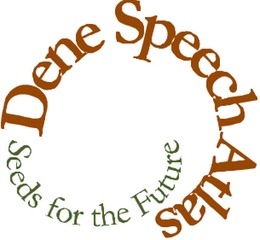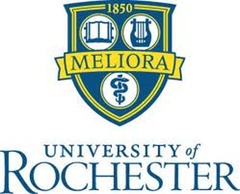Visitors interested in preserving, teaching, or learning about Dene languages may find many resources freely available on the Open Web. To aid in such efforts, some of these resources are provided within the Dene Speech Atlas.
Specialized Information and Resources
Specialized resources are organized with links and annotations within five categories:
- FAMILY RELATIONSHIPS
- FIRST NATIONS' STUDIES
- LANGUAGE MAPS
- LANGUAGE MATERIALS
- LANGUAGE PRESERVATION & PROGRAM PLANNING
Visitors may access the specialized information and resources by selecting one of the links provided above or by hovering over the RESOURCES tab and selecting a specific topic from the dropdown menu.
Visitors may also find the general use resources listed below to be of interest.
General Use Resources
- Assembly of First Nations Canada is a site where visitors can access information on First Nations' organizations and partnerships, agreements and resolutions, policy areas and politics, and news and media.
- Endangered Languages is a project of the Alliance for Linguistics Diversity. Google in collaboration with the First Peoples' Cultural Council and The Institute for Language Information and Technology (The Linguist List) at Eastern Michigan University launched this website "to record, access, and share samples of and research on endangered languages, as well as to share advice and best practices for those working to document or strengthen languages under threat."
- Enduring Voices: Documenting the Planets Endangered Languages is a project of National Geographic. The goal of the project "is to document endangered languages and prevent language extinction" by identifying the crucial areas of language endangerment and by acting to understand language distribution, to link linguistic diversity and biodiversity, and to focus attention on the issue of language loss.
- Ethnologue: Languages of the World provides resources on languages worldwide including language data, language maps, extensive bibliographies, computer tools, and SIL International publications.
- Language Documentation Research Cluster is a project of the Linguistics Department at the University of Alberta and provides technical resources and laboratory space for for the study, documentation, and revitalization of minority and endangered languages.
- LanguageGeek is "dedicated to the promotion of indigenous languages – primarily those of North America." It offers valuable tools, including free Aboriginal Serif and Sans Serif Fonts and Keyboard Layouts (PC and Mac), pages dedicated to the descriptions of specific languages, a bibliography, information on language typography, and a blog.
- MultiTree is a searchable database of proposed language relationships. It enables users to access information on languages, compare language trees, and see graphical representations on all scholarly hypotheses for langauge relationships.
- Statistics Canada is a government portal to statistical information on every aspect of Canadian life and allows visitors to browse by subject and by key resource. The subject index includes links to Aboriginal Peoples and to Languages.
- World’s Atlas of Language Structures Online (WALS) is a project of the Max Planck Institute for Evolutionary Anthropology and the Max Planck Digital Library. It comprises "a large database of structural (phonological, grammatical, lexical) properties of languages gathered from descriptive materials (such as reference grammars)" compiled by a large team of people.


